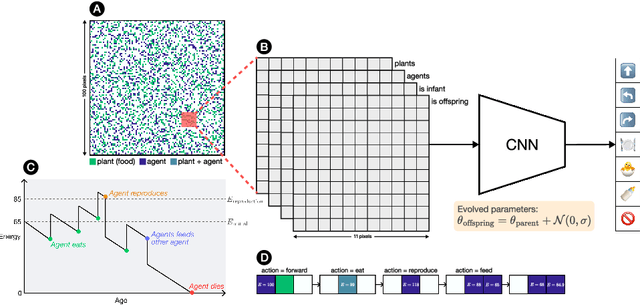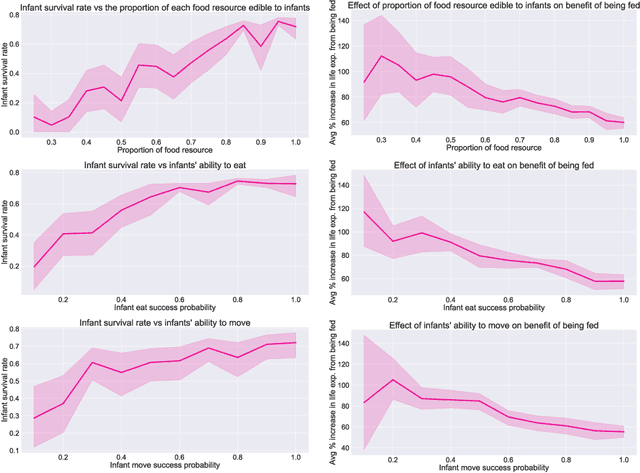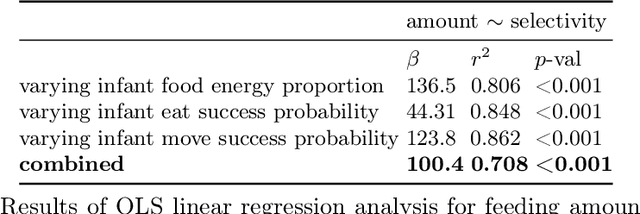Timothé Boulet
Emergent kin selection of altruistic feeding via non-episodic neuroevolution
Nov 15, 2024



Abstract:Kin selection theory has proven to be a popular and widely accepted account of how altruistic behaviour can evolve under natural selection. Hamilton's rule, first published in 1964, has since been experimentally validated across a range of different species and social behaviours. In contrast to this large body of work in natural populations, however, there has been relatively little study of kin selection \emph{in silico}. In the current work, we offer what is to our knowledge the first demonstration of kin selection emerging naturally within a population of agents undergoing continuous neuroevolution. Specifically, we find that zero-sum transfer of resources from parents to their infant offspring evolves through kin selection in environments where it is hard for offspring to survive alone. In an additional experiment, we show that kin selection in our simulations relies on a combination of kin recognition and population viscosity. We believe that our work may contribute to the understanding of kin selection in minimal evolutionary systems, without explicit notions of genes and fitness maximisation.
 Add to Chrome
Add to Chrome Add to Firefox
Add to Firefox Add to Edge
Add to Edge